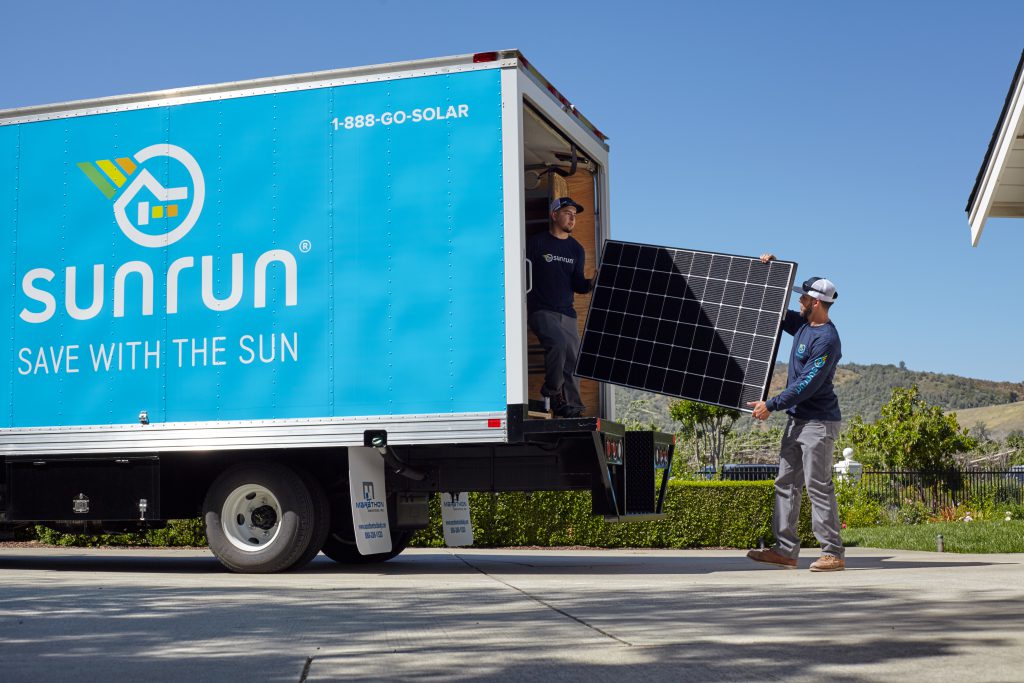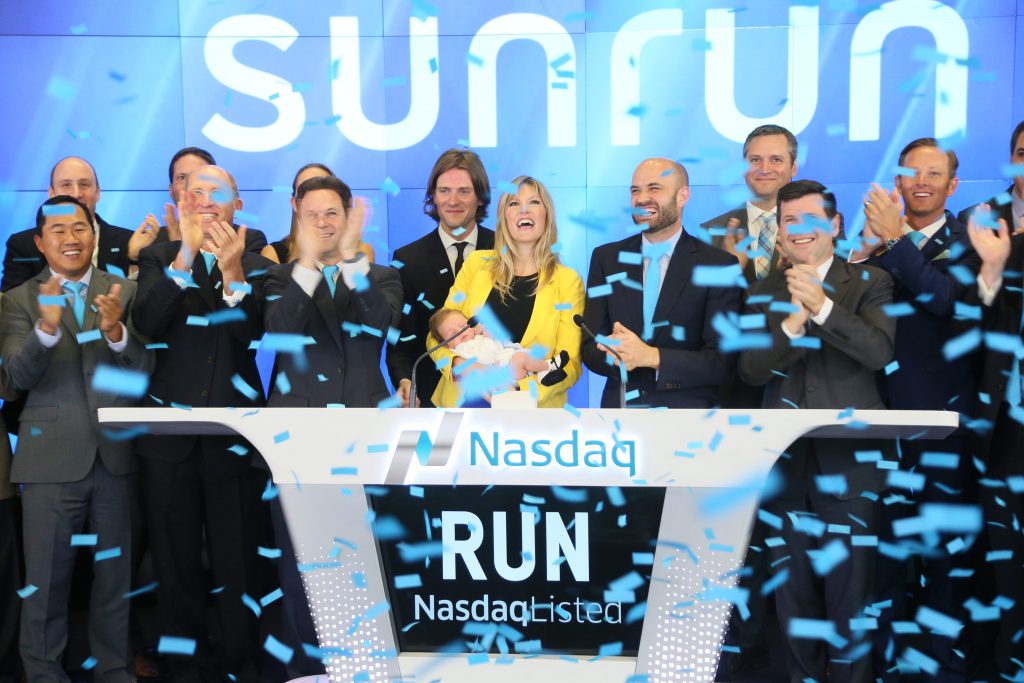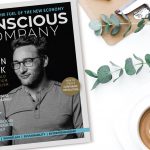When Edward Fenster approached his Stanford business school classmate Lynn Jurich in the mid-2000s about starting a solar energy company, Jurich’s impression of the industry was typical at the time: it’s expensive and will never become a mainstream technology. But when Fenster contended that solar energy was becoming cheaper and a viable pursuit, Jurich jumped on board. Little did they know how tumultuous the journey would be, as the infamous financial crisis of 2008 was just around the corner.
“I’m a pretty methodical person,” Jurich says, “so when I think about that decision I wonder, ‘Why did I jump at that?’”
Upon deeper reflection, Jurich finds a number of life experiences that caused her to act, including childhood memories of her mother encouraging a love of the outdoors. “There’s a rhythm to walking through nature that soothes the soul,” Jurich says. “It’s always been important to me to help preserve that.”
Her love for the planet strengthened after she witnessed what she says was a shocking amount of pollution while working in China. “I knew I wanted to have children one day, and I was convinced that this was our generation’s biggest problem to solve.”
By the time Fenster’s proposal came along, it was only natural for Jurich to take the leap. “That palpable feeling that the world needs renewable energy allowed me to simply say, ‘Yeah, I’m in!’” The two graduate students started Sunrun out of Fenster’s attic in San Francisco with a simple yet ambitious mission: create a planet run by the sun.

Sunrun is the largest dedicated provider of residential solar, storage, and energy services in the United States. The company operates in 22 states, has 3,000 employees, serves over 200,000 customers, and has saved those customers more than $200 million in electric bills.
A competitive edge
Jurich has always considered herself a fierce competitor, striving “to prove that women could do things just as well as men could.” This sock-it-to-’em attitude revealed itself first in sports and then in her pursuit of math, engineering, and finance tracks in school. When Jurich called upon her network of Stanford alumni in the energy industry for insight on her new venture, she received a familiar source of motivation.
“Their response was: ‘Yes, solar is becoming a more viable option, but there are so many sophisticated people doing this that will never work,’” Jurich recalls. “What I heard very clearly was an implication that I wasn’t sophisticated, or that I was too young, naive, or inexperienced in energy for it to work.” Thus a fire was fueled.
With a newfound zest, she and Fenster dove into a first-person market research project, reaching out to potential clients. “We called some of the early solar customers in those days, which were universities, public schools, governments, and some forward-thinking businesses, trying to understand what they wanted, what their needs were,” Jurich says. “Because it was a nascent industry, there wasn’t a lot of research — so we did our own, talking to anybody who would take our call.”
The duo’s research paid off. “We quickly realized that there was strong interest in solar, but it was complex and expensive,” Jurich says. Then the aha moment came: “People will switch to solar if we can just make it easy.”
Solar as a service
“There was a lot of investment going into solar panels to make them more efficient and cost-effective,” Jurich says, “but there weren’t a lot of people thinking about the business models to get these panels up on rooftops.”
Jurich and Fenster pioneered a monthly billing model — solar as a service — similar to how people typically paid for utilities. Consumers buy the power, not the solar panels producing it; these Sunrun installs and maintains. This model required the company to incur large up-front costs for solar panel installation (around $50,000 per home) and ask consumers to sign long-term contracts to pay for the electricity. “There were some early subsidies for it,” Jurich says. “Even though solar was fairly expensive 10 years ago compared to now, we could sell electricity for a slight premium versus what the utility company was selling it for, even with zero up-front costs for customers.”
Convincing people to sign a long-term contract with a startup was not an easy feat — nor was financing the endeavor. “In retrospect, what we did was quite risky,” Jurich says. “We spent all of our own money, buying all these systems up front. We didn’t pay ourselves for quite a long time.”
A renewable spirit
The duo did raise $7 million from venture capital firms, but they were still spending all of that equity capital to purchase systems. And then came the curveball: after they had spent millions of dollars on their startup, the market crashed. The day Sunrun closed their first project finance fund in November 2008, the S&P hit an 11-year low.
“When the markets collapsed, we were faced with: ‘Can we get the capital raised? Do we have to shut the business down?’” To add insult to injury, the subsidies available for solar changed, so they had to restart the business altogether. “We looked at each other and said, ‘We’re going to get it done because we have to; we have no choice.’”
It was a stressful time, Jurich admits, but eventually they were able to find a bank that had been less exposed to the subprime mortgage crisis and still had capital available to invest.
“We convinced U.S. Bank to give us $40 million, which kept us going for the next year, through the crisis. We developed a track record that proved consumers wanted this, that people were paying their bills, that there was a deep market for solar. From that point forward, we’ve been able to steadily attract the capital to finance the business,” Jurich says. Sunrun has raised more than $3 billion worth of that capital over the last 10 years. Today, Sunrun is the largest dedicated provider of residential solar, storage, and energy services in the United States. Sunrun operates in 22 states, has 3,000 employees, serves over 200,000 customers, and has saved those customers more than $200 million in electric bills.
“I don’t think we would’ve done anything different, but we questioned our sanity,” Jurich laughs. “Had we not been a little bit naive in what we were getting ourselves into, we would not have done it — the story of every entrepreneur on the planet.”
Behind the success
Sunrun’s tremendous growth in the past decade boils down to two things, according to Jurich. The first is knowing your market; the second is building a business in a sector that’s somewhat difficult to enter in terms of competition. “I’m a big believer that you need these two dynamics,” she says. “Force of will and smart business skills are not enough, but you can be prepared. You can do the leg work on truly understanding what the consumer wants and figuring out whether or not you’re going to be in the unique position to deliver that in a way.”
The traditional utility industry is letting people down. “They are still burning dirty fuel, their prices continue to go up, and they are run inefficiently,” says Jurich. “The aging grid and infrastructure are often crashing during extreme weather, leaving people without power.”
While it’s important to identity consumers’ needs, Jurich urges that as CEO or founder of the company, you have to do the work to talk to consumers yourself — not hire a salesperson to do it for you. Jurich’s early conversations with consumers enabled her to cultivate the resilience to endure the pressure and doubt in Sunrun’s early stages. “It was really important for me to have that personal conviction from talking to the customer,” she says. “I was able to say, ‘I see the need, and I have the vision for what this can be.’”
Sunrun went public in 2015, and Jurich rejects out of hand the notion that there’s a tradeoff between accounting for the needs of stakeholders versus shareholders. “I do think people overestimate this tradeoff of short-term versus long-term . I don’t think it’s so stark, and I don’t think it’s such a tradeoff. As long as you’re consistent with your values, the decisions you make for short-term results are often the right ones for long-term results as well.”
“As long as you’re consistent with your values, the decisions you make for short-term results are often the right ones for long-term results as well.”
— Lynn Jurich, Co-founder & CEO, Sunrun

In August 2015 — with a one-month-old baby in tow — Jurich completed Sunrun’s IPO.
Make it light
Jurich likes victorious outcomes. “I’m competitive,” she says. “I like to win. I believe that our mission is so important that we need the outcomes of more solar panels up on more roofs. But over the years I’ve learned to nourish the heart and the soul as well as deliver the outcomes. As a leader, that’s what I’ve grown to model and build into the culture and the values of the organization. We’ve gotten better and more attuned to that heart-and-soul part of the company, as well as the heart and soul of the people who come to help deliver the mission.”
In this business, things can feel so serious — quarterly earnings, the planet, signing a 20-year contract with a customer. “I’ve really come around to realizing that you can make those things fun and playful; you can make them light. If I find myself getting too serious, it’s a sign for me to look into it a little bit deeper. Is there some fear in there? What’s really going on? How do we actually zoom out and make this light?”
On top of running a publicly traded company, Jurich has a 3-year-old and a 6-week-old, and her key to managing time and stress comes back to nourishment. “You need to nourish your mind, your spirituality, and your body,” she says. “You can’t ignore one of them, because it’s going to make the others fall apart.” On her list of practices is a three-mile walk to work on hilly San Francisco streets, frequent tennis matches, and a morning meditation session that has become “a huge life-changer.”
A bright future
Jurich always bets on technology and consumer choice to drive the future.
“In the world right now, we’re so politicized. The environment and renewable energy are kind of political topics, yet if you look at any of the research, 80 percent of people believe we should move towards renewable energy. I just don’t know of any other political issue out there that has so much one-sided public support. I’m really hopeful that these horrible climate-change challenges we’re facing can be a real unifying force for humanity,” Jurich says.
She is optimistic that if we invest in more rooftop solar and energy storage we can make our goods stronger, increase savings for consumers, and help improve the climate. “Since starting the company 10 years ago, I’ve been pleasantly surprised by the advancements in technology. The cost of solar and storage, and the number of consumers who have switched to solar have far exceeded my expectations. I believe the next 10 years will bring similar surprises.”
SEE Lynn Jurich as of the 35 World-Changing Women in Conscious Business 2019
HEAR Lynn Jurich on the World-Changing Women Podcast




